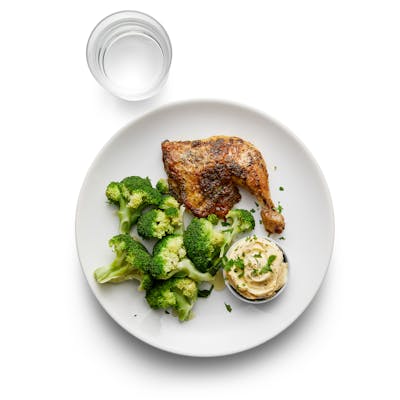Keto Diet Carb Intake Daily
How low carb is keto?
- Overview
- Video
- Three carb levels
- Fiber and net carbs
- How to choose
On a keto diet, how many carbs do you need to cut? How many carbs can you eat? The answer varies a bit depending on you as an individual and your goals.
In general: the fewer the carbs the bigger the impact might be on weight loss and reduction of cravings and hunger.1 If you have type 2 diabetes, the fewer carbs you eat, the faster your blood glucose and insulin resistance might improve.2 Some, however, find a very low carb diet too restrictive and challenging.
Here are three examples of how a low-carb dinner can look, depending on how many carbs you eat per day.
Ketogenic
Under 20 grams per day
Moderate
20-50 grams per day
Liberal
50-100 grams per day
The plate on the left would be ketogenic for most people. The other two, while very healthy, would not likely be ketogenic, but could still contribute to gradual weight loss and improved blood glucose and insulin sensitivity.3
We define low carb as anything under 100 grams per day. Note that a Western diet often has 250 grams of carbs per day, or even more.4
Learn more about the carb level that's right for you
How we define low carb and keto
At Diet Doctor, we define the different levels of carbs this way:
- Ketogenic low carb <20 gram net carbs per day.5This level of carbohydrates is defined as below 5 energy percent (E%) carbs in our recipes or, if it is a meal, 7 grams of carbs or less.6 In our ketogenic recipes the amount of carbs per serving is shown in green balls.
- Moderate low carb 20-50 net grams per day. This level is defined as between 5-10 E% carbs in our recipes and the amount of carbs per serving is shown in yellow balls.
- Liberal low carb 50-100 net grams per day. This means 10-20 E% carbs in our recipes and the amount of carbs per serving is shown in orange balls.
Note: Although our recipes are arranged by percent calories of carbs, protein, and fat, we do not feel you need to calculate these on your own. We provide them as a reference, but practically we recommend you limit your carbs, ensure adequate protein, and adjust fat as needed for satiety and taste. That eliminates the need to constantly calculate "percent macros."
Fiber and net carbs
Our listed carb counts are the number of digestible carbs, also called net carbs. This simply means we do not count the fiber.7 For example, you can eat nearly all the fiber you want from keto vegetables without seeing a significant sugar or insulin impact.8
However, be very careful of the term "net carbs" on labels of low-carb products, processed foods, protein bars, and energy/chocolate bars. Manufacturers often use "net carbs" as a way to disguise sugar alcohols that may slow weight loss and impact blood sugar.9 In fact, try to avoid any processed product that list "net carbs" on a label. Learn more about keto sweeteners
The most effective keto diet — and the healthiest — is likely based on natural, whole foods.10 Learn more
Keto recipes
What carb level to choose?
Do you need to stick to a keto diet, consuming under 20 grams of carbs a day? Or would you have good results with a moderate low carb diet, consuming 20 to 50 grams of carbs a day?
People with a lot of weight to lose, type 2 diabetes, insulin resistance, metabolic syndrome or sugar and/or food addiction, may find that they get their best results on a keto diet, keeping carbs very low.11 When starting out, however, they may experience keto side effects, like the keto flu, until they are adapted to burning more fat.
People who want to lose pounds but still have good insulin sensitivity, have less weight to lose, or still have good blood sugar levels can often do very well on a moderate or even liberal low carb diet.12 They are less likely to experience significant side effects. Lean, active, and healthy individuals can also do very well on liberal low carb.
We believe many people may do best starting out on a strict keto diet.13 This will give you the best idea of whether you like how you feel, how it impacts you, and what sort of results you get.14 Then, as you hopefully achieve your health and weight goals, you can decide whether to add more carbs back into your diet to a level where you feel your best and can maintain your health goals.
Here's a two-week get-started guide to a keto diet
However, if you feel that avoiding most carbs is too hard, it's also possible to get some health benefits by just avoiding the worst carbs.15 Perhaps this can be the right start for you? In that case, feel free to use the guide below:
Eating better: Six steps down the carb mountain
More

A ketogenic diet for beginners

14-day keto diet meal plan with recipes and shopping lists

Ketogenic diet foods – what to eat and what to avoid
Visual guide
Source: https://www.dietdoctor.com/low-carb/keto/how-low-carb-is-keto